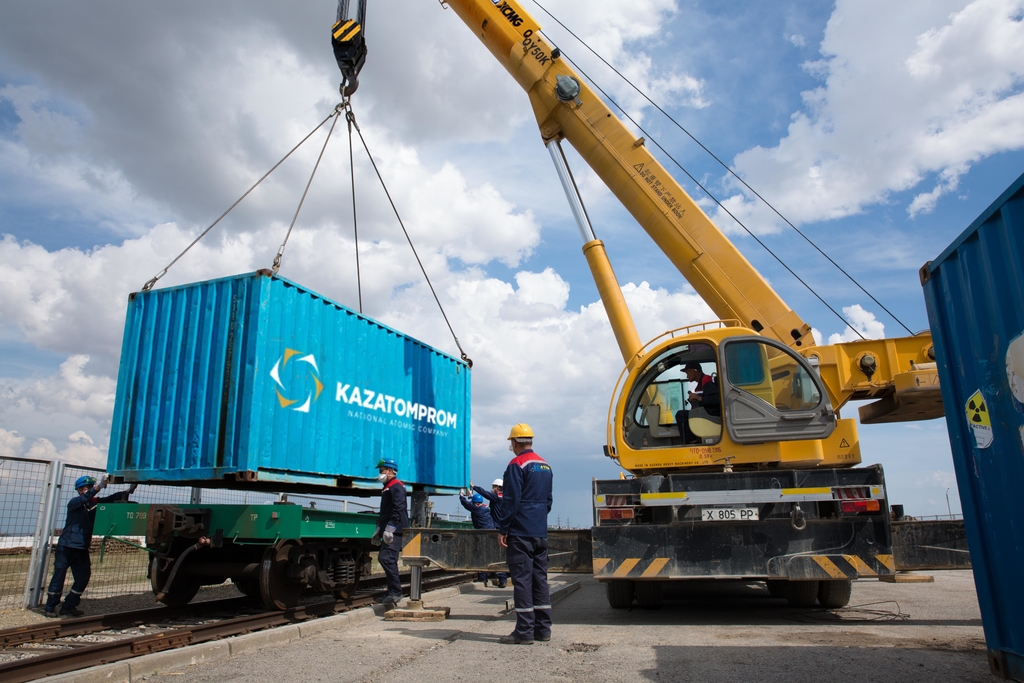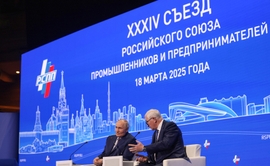Kazakhstan’s energy market is struggling with an oversupply of nuclear fuel, but its national operator for the importation and export of uranium, Kazatomprom, announced Wednesday its first deal with Brazil. The cost of the deal has not been revealed.
Brazil has shown a strong interest in purchasing Kazakhstan’s nuclear fuel after officials from Astana last year had offered to sell uranium to Brazil to cover the South America country’s short supply for its nuclear reactors.
“We proposed the participation of Kazakhstan in tenders for the purchase of uranium or any other type of fuel that might be used in the Brazilian industry,” Kazakhstan’s Deputy Foreign Minister Yerzhan Ashikbayev said after meeting with Brazilian energy officials, on May 5, 2017.
While Brazil sits atop some of the world’s largest uranium reserves, the country’s nuclear industry has lagged after environmental agencies denied providing operators with licenses to extract the ore. In addition, lack of investment affects Brazil’s enrichment capability. Angra I and Angra II, the two nuclear power plants in Brazil, operate using uranium purchased from Canada, while the half-built Angra III is inoperative and is waiting for an investor.
Kazakhstan inherited the Soviet Union’s nuclear industry in 1991 when the country became independent. At the same time, President Nursultan Nazarbayev renounced nuclear defense capabilities and closed down the Semipalatinsk nuclear test site, as well as removed nearly 600 kilograms (1,100 lbs) of weapons-grade enriched uranium placed in a warehouse at the Ulba Metallurgical Plant outside Ust-Kamenogorsk.
Meanwhile, Kazakhstan continued to extract uranium for peaceful purposes.
In 2017, the state-owned Kazatomprom announced that the country will cut uranium production by 20 percent over next three years due to “the challenging market conditions.” Global uranium prices dropped by over 70 percent following the Fukushima nuclear power accident in March 2011, while the world’s largest publicly traded uranium company, Cameco, was forced to suspend production in a bid to reduce oversupply in the market.
"We believe that these measures strongly underline our commitment to ensuring the long-term sustainability of uranium mining; a critical component in the generation of clean, carbon free electricity around the globe,” Galymzhan Pirmatov, chairman of the management board at Kazatomprom, said on December 21, 2017.
Brazil is not the only country energy-rich Kazakhstan is partnering with in a bid to sell uranium ore.
In April 2016, Kazatomprom signed an agreement for the supply of 950 tons of uranium concentrate to Iran. This contract was designed to cover three years and was expected to become a breakthrough for the Kazakhstani uranium industry. The deal is now in jeopardy as it is at odds with the Trump administration’s policies regarding Iran.
Deputy Prime Minister of Kazakhstan and the then head of Kazatomprom, Askar Zhumagaliyev, said last year his company was ready to sell uranium to anyone, if only it would correspond to the rules set by the International Atomic Energy Agency (IAEA).
“We would like to work with all countries, which have nuclear power plants today,” told Kazakhstani officials in Majilis, country’s parliament.
“We will implement this contract only after agreeing it with all member countries of the big six of the UN Security Council,” he added.
In December 2017, Kazakhstan extended the term of the uranium contract with Iran until 2020.







 Azerbaijan’s historical biographical film “Taghiyev” has won the Best Feature Film award at the Dehancer Colorist Awards 2024. The film, which chro...
Azerbaijan’s historical biographical film “Taghiyev” has won the Best Feature Film award at the Dehancer Colorist Awards 2024. The film, which chro...
 Azerbaijan has been recognized as one of the safest countries in the world, ranking 90th among 163 countries on the Global Terrorism Index 2025 (GTI).
Azerbaijan has been recognized as one of the safest countries in the world, ranking 90th among 163 countries on the Global Terrorism Index 2025 (GTI).
 The Azerbaijani Defense Ministry has reported ongoing shelling of its army positions by Armenian forces since last week.
The Azerbaijani Defense Ministry has reported ongoing shelling of its army positions by Armenian forces since last week.



